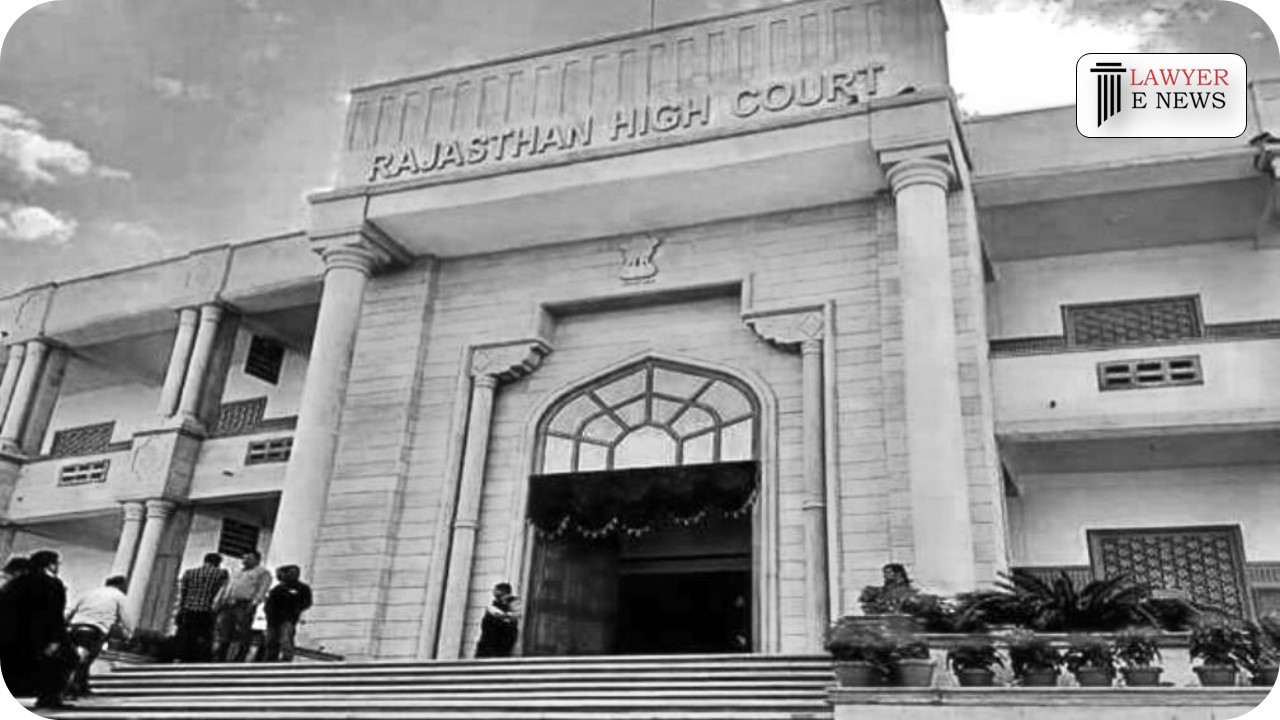-
by Admin
15 February 2026 5:35 AM



High Court quashes dismissal, orders reinstatement with all consequential benefits citing lack of evidence and non-speaking orders by disciplinary authorities.
The High Court of Judicature for Rajasthan has overturned the dismissal of Constable Shri Sunder Pal, who was removed from service in 1996 for allegedly submitting a forged educational certificate. The court emphasized that the disciplinary authorities failed to provide substantial evidence and ignored key objections raised by the petitioner. The judgment, delivered by Hon’ble Mr. Justice Ganesh Ram Meena, mandates the reinstatement of the petitioner with all consequential benefits.
The case revolved around the dismissal of Shri Sunder Pal, a constable with the Rajasthan Armed Constabulary (RAC), who was accused of submitting a forged transfer certificate to alter his date of birth. Initially appointed on December 23, 1981, he was removed from service on October 17, 1996. Despite being acquitted by the criminal court on similar charges, the departmental proceedings continued to hold him guilty, leading to his appeal in the High Court.
The court noted that the disciplinary authorities did not summon key witnesses or provide necessary documents to the petitioner. The absence of a proper inquiry into the alleged forgery significantly weakened the disciplinary actions. Justice Meena observed, “The evidence of the Head of the Institution from where the alleged transfer certificate was issued was not collected. This evidence was crucial and the failure to obtain it invalidated the disciplinary process.”
Justice Meena highlighted the difference in standards of proof between criminal and departmental proceedings. However, he emphasized that an acquittal in a criminal case based on the same facts should impact the validity of departmental actions, especially when the latter lacked substantial evidence. “When in a criminal case based on same facts the petitioner has been acquitted by the Competent Court, the penalty imposed upon the petitioner by the respondents on same facts and allegations stated to be proved, is not sustainable,” the court stated.
The judgment criticized the disciplinary and appellate authorities for issuing non-speaking orders, which did not address the objections and defenses raised by the petitioner. “The order of the Disciplinary Authority is a cryptic and innocuous order… the objections raised by the petitioner in response to the show-cause notice have not been dealt with,” noted Justice Meena.
The court reiterated the importance of reasoned orders in disciplinary actions. It found that the dismissal and appellate orders were arbitrary and lacked substantive justification. The disciplinary authority failed to provide evidence of forgery and ignored critical objections, such as the petitioner’s request for change of defense counsel and the failure to summon defense witnesses. “In service jurisprudence, the burden to prove the alleged charges lies upon the respondents and not that he has to prove his innocence,” Justice Meena emphasized.
Justice Meena remarked, “The respondents have failed to prove the charges leveled against the petitioner for adducing or collecting the material evidence. The impugned order dated 17.10.1996 and the order dated 31.03.1997 are non-speaking, illegal, and arbitrary.”
The High Court’s decision to quash the dismissal and order reinstatement underscores the necessity of evidence-based and reasoned disciplinary actions. This judgment reinforces the legal principle that departmental proceedings must be conducted with due diligence and fairness. The ruling is expected to have a significant impact on future disciplinary actions within the police services and beyond, emphasizing the judiciary’s role in upholding justice and procedural integrity.
Date of Decision: July 01, 2024
Shri Sunder Pal vs. State of Rajasthan and Ors.
